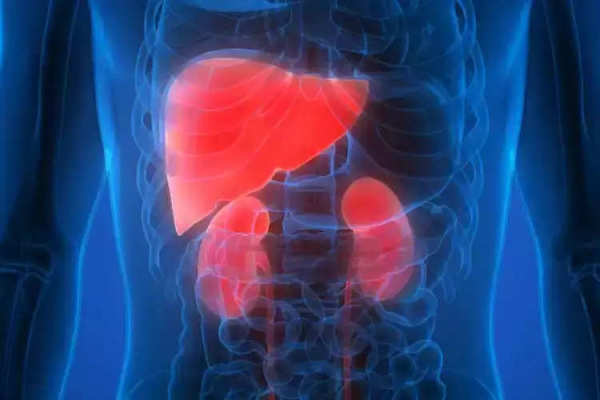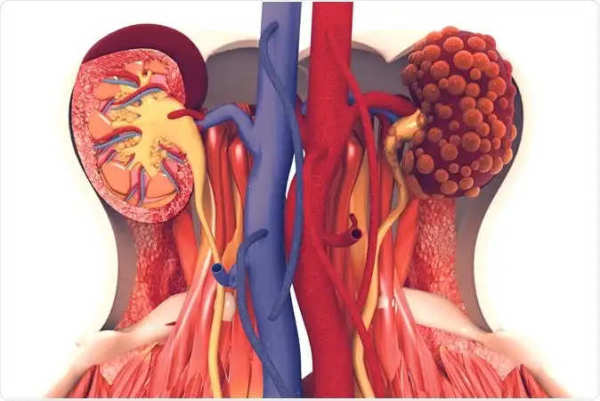
Kidney cancer starts in the kidney and can cause tumors. Symptoms may include blood in the urine and back pain. Risk factors include smoking, obesity and high blood pressure.

Overview
Kidney cancer is a disease that starts in the kidney. It occurs when healthy cells in one or both kidneys start growing uncontrollably and form a lump (called a tumor).
Signs and symptoms
In the early stages, most people do not have any symptoms or signs. Kidney cancer is usually detected incidentally during abdominal imaging tests for other complaints. As the tumor grows, you may have these symptoms:
Blood in the urine
Lower back pain
Lump on the lower back or side of the waist
Weight loss, night sweats, fever or fatigue for no apparent reason
Causes
The reason why kidney cells change and become cancerous is not yet known.
We know that people's chances of getting kidney cancer increase as they age. However, there are also some risk factors associated with kidney cancer.
Risk factors
A risk factor is something that makes you more likely to get the disease. Some risk factors can be changed (for example smoking); but others cannot be changed (your gender or family history). Having a risk factor or multiple risk factors does not mean you will get kidney cancer, but it can increase your risk.
Risk factors for kidney cancer include:
Smoking
Being overweight (obesity)
High blood pressure
Gender — about twice as many men as women develop kidney cancer
Being on dialysis treatment for advanced chronic kidney disease
Having a family member with kidney cancer
Long-term use of a painkiller called phenacetin
Certain rare genetic diseases, such as von Hippel-Lindau disease, Bert Hogg Dube syndrome, and others
Long-term history of exposure to asbestos or cadmium
You may be able to reduce your risk of developing kidney cancer by avoiding risk factors that can be controlled. For example, stopping smoking can reduce the risk, and controlling body weight and high blood pressure can also help.